The HP S700 And S700 Pro SSD Review
by Billy Tallis on September 7, 2017 9:00 AM ESTAnandTech Storage Bench - Light
Our Light storage test has relatively more sequential accesses and lower queue depths than The Destroyer or the Heavy test, and it's by far the shortest test overall. It's based largely on applications that aren't highly dependent on storage performance, so this is a test more of application launch times and file load times. This test can be seen as the sum of all the little delays in daily usage, but with the idle times trimmed to 25ms it takes less than half an hour to run. Details of the Light test can be found here. As with the ATSB Heavy test, this test is run with the drive both freshly erased and empty, and after filling the drive with sequential writes.
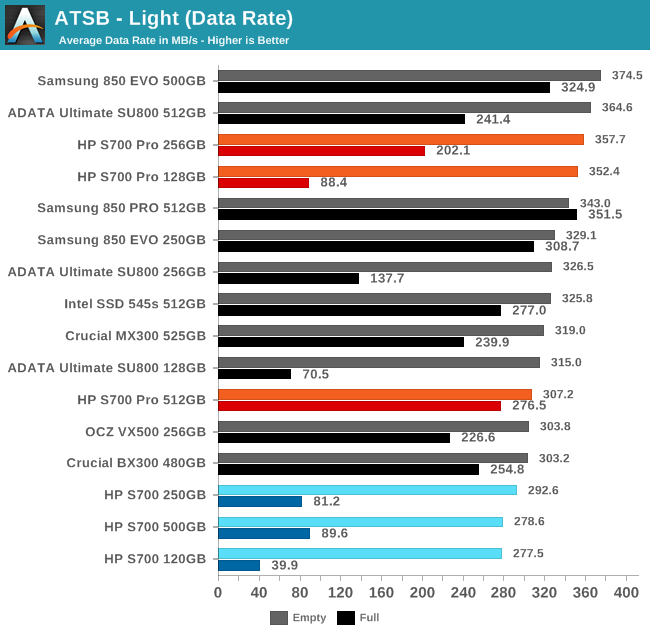
On our lightest ATSB test, the average data rate scores are not as widely variable and higher capacity doesn't always translate to a clearly higher score. The empty-drive performance of the HP S700 is slower than everything else regardless of capacity, but not by a huge margin. When the drives are full, the HP S700's performance drops precipitously, but the 512GB HP S700 Pro retains more performance than even Crucial's drives.
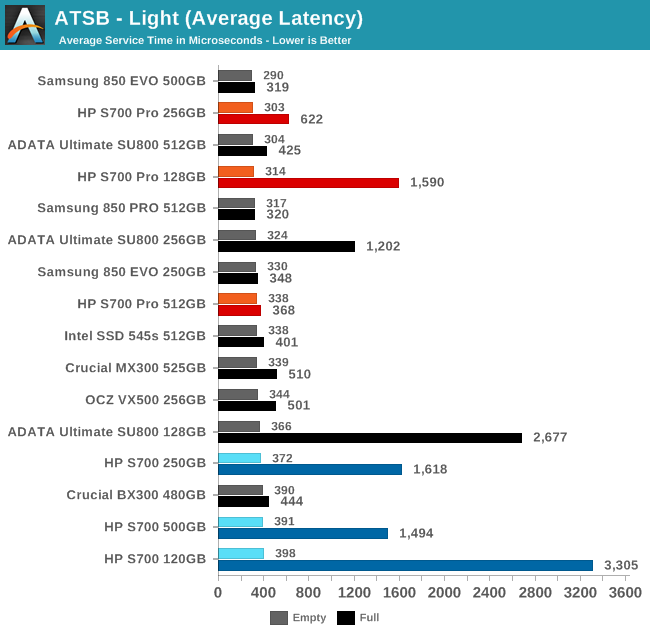
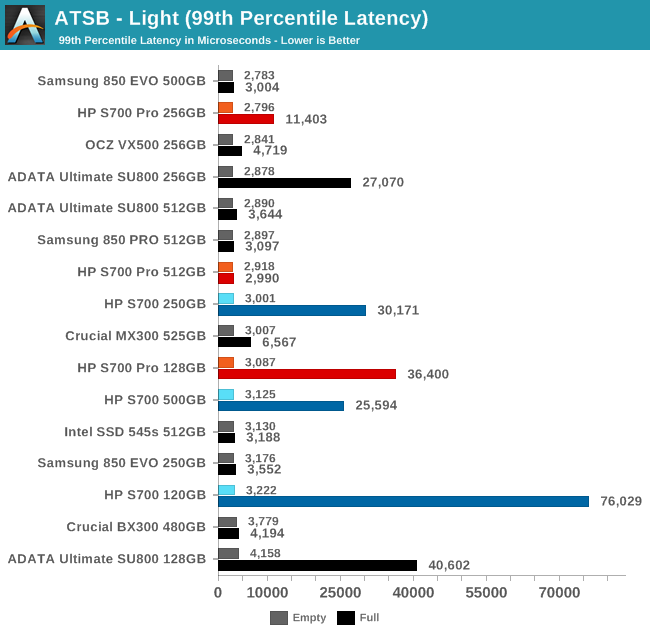
None of these drives has a problem with average latency when the Light test is run on an empty drive. The ADATA SU800, HP S700 and the smaller two capacities of the S700 Pro show much higher average latency when full, but on a test this light the worst scores are still in the low millisecond range. The 99th percentile latency scores paint a similar picture of all the drives being fine until they're full, and the 512GB S700 Pro handles being full quite well.
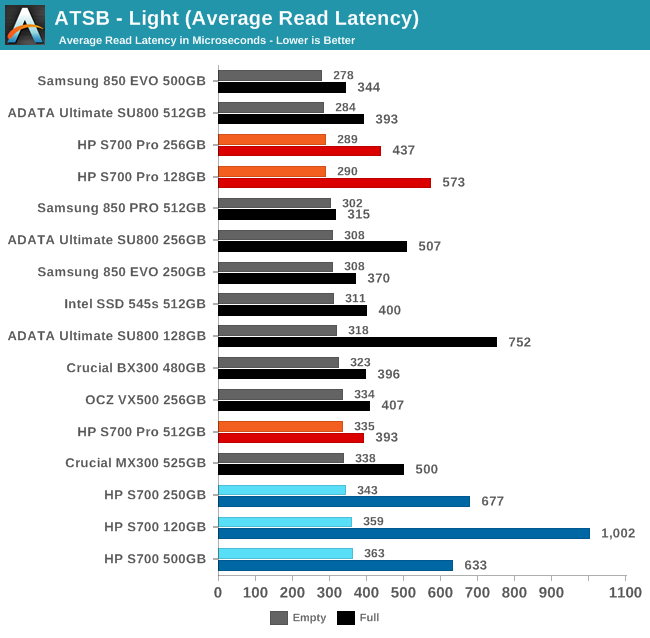
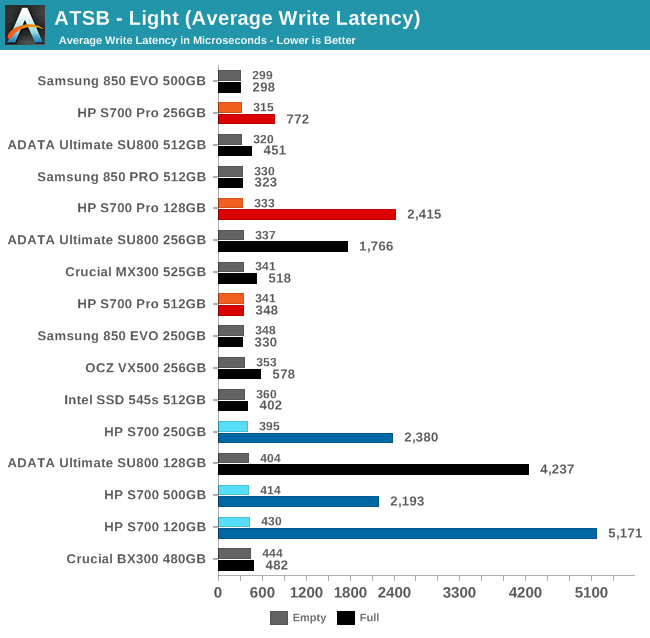
The 120GB S700 is the only drive in this bunch where average read latency exceeds 1ms when the test is run on a full drive. Average write latencies can climb to over 1ms for several drives, and the 120GB S700 breaks 5ms in the worst-case conditions for the Light test.
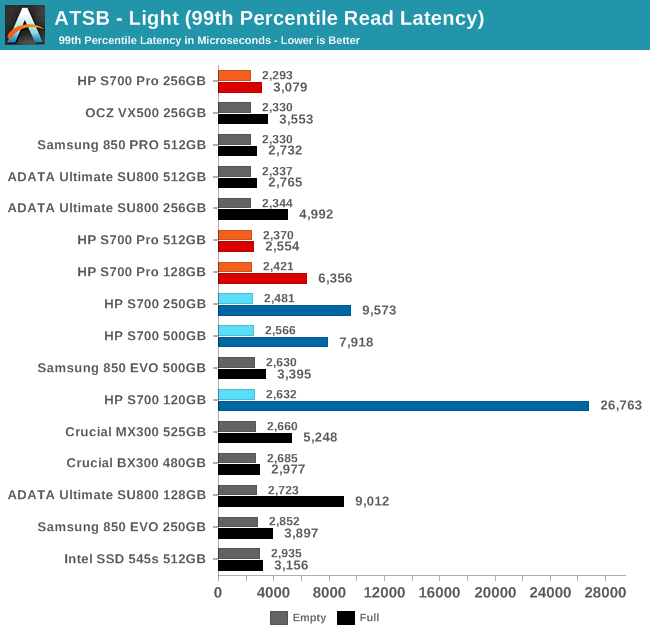
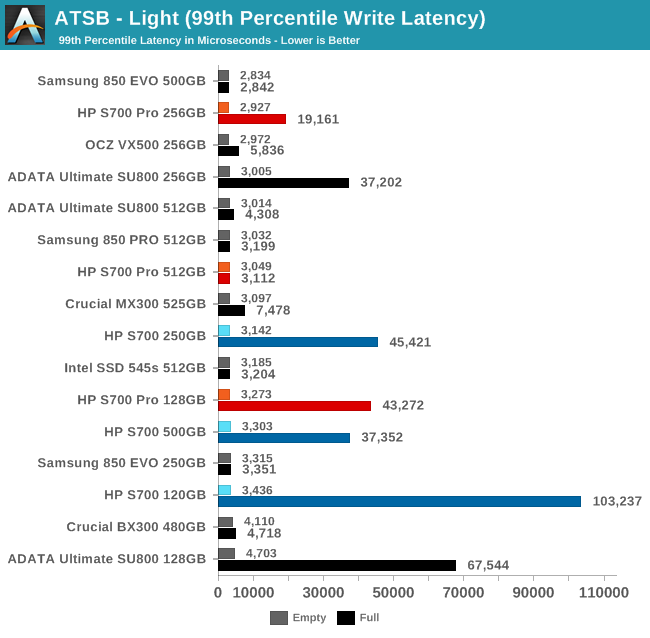
The 99th percentile read and write latencies are all in the low-millisecond range when the Light test is run on an empty drive. With the drives full, the worst case is again the 120GB S700, with thirty times higher 99th percentile write latency. But since this is still only 100ms, even this slowest drive doesn't produce noticeable pauses during ordinary use for light workloads.
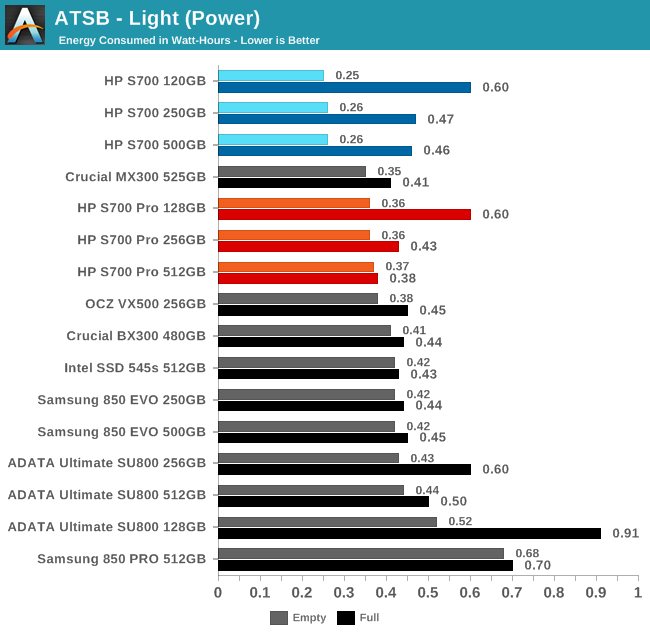
All three HP S700s top the energy efficiency charts, and the S700 Pros aren't far behind. Energy efficiency is worse when the test is run on a full drive, but the result is that the S700 Pro ends up at the top instead of the S700. Before TLC NAND took over the mainstream SSD market, Silicon Motion's controllers were known for great efficiency. HP's drives show off Silicon Motion's efficiency much better than the ADATA SU800 did.










54 Comments
View All Comments
superunknown98 - Friday, September 8, 2017 - link
Did anyone else notice the ADATA SU800 512GB was faster than the HP S700 Pro 512GB for the majority of tests, yet the conclusion said the HP was faster? Granted the HP's of lesser size were faster than their counter parts.petar_b - Tuesday, September 12, 2017 - link
Useless drive. I wouldn't like that drive/controller in my server LOL... Even cheapest Crucial or Micron drives have DRAM at least....morphix - Sunday, April 1, 2018 - link
it's $115 for 512GB @walmartportedbikes - Monday, February 25, 2019 - link
I just had the most annoying failure ever with this HP Pro 512GB drive, formatted it and when trying to install W10 it just died and gave me an I/O device error, it will not be recognized by the bios if connected to a SATA port, but it will be recognized by windows if connected via USB with an enclosure, still not able to format it, or do anything with it, I/O Device error everytime... First and last time I buy one of these drives, they do not even come with trim software, I have never had a problem like this with Samsung, Intel, or PNY SSDs... first time I use HP and failed miserably... reading reviews on Amazon these drives fail as fast as 3 months to 1 year and HP warranty sucks. For $15 extra get an 860 Evo and call it a day, really not worth the savings.